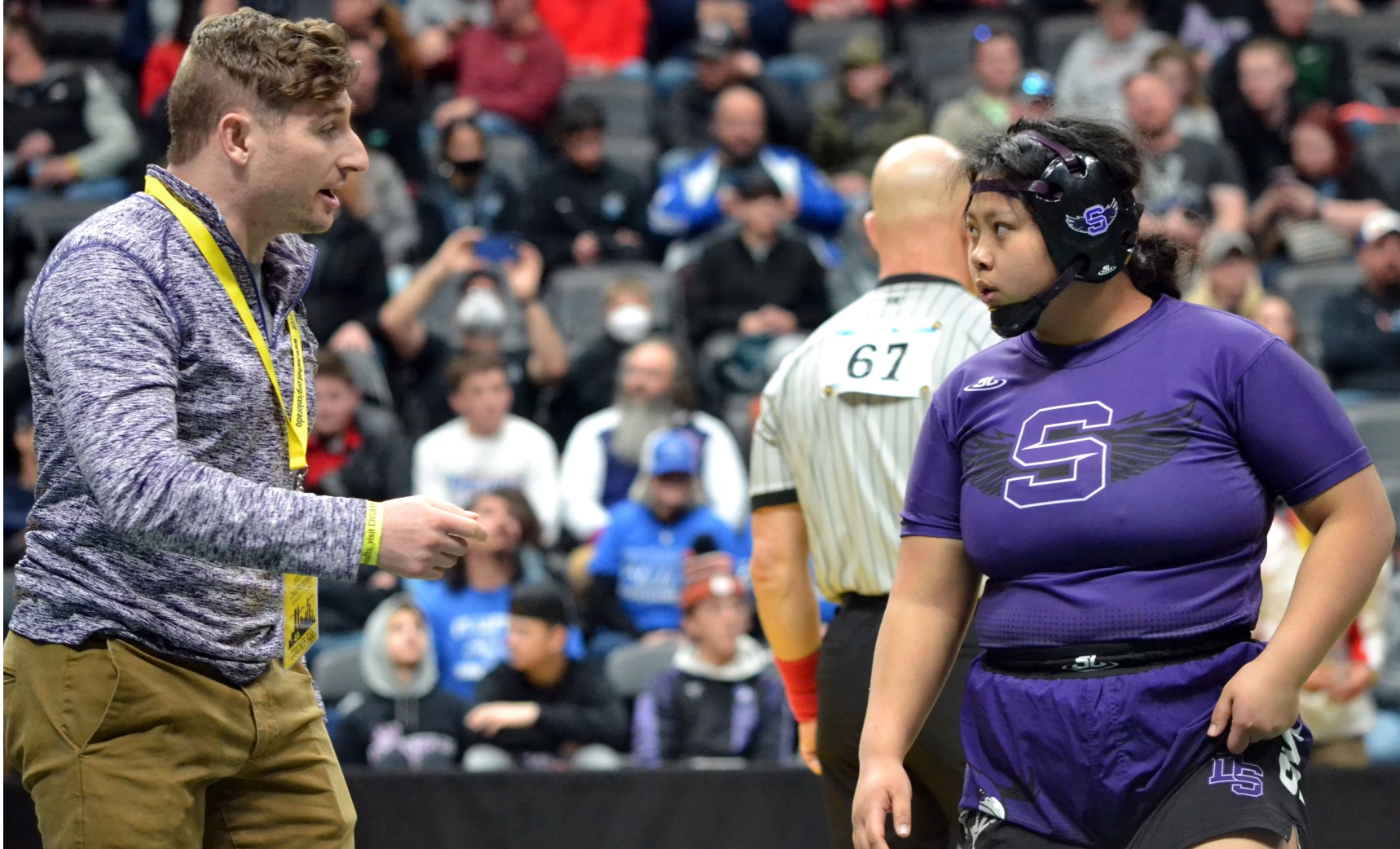Posted February 28, 2022

Cree Moo has found her hobby, and now that she’s competed at an elite level, it’s only enforced her belief: Anybody can wrestle on the big stage.
No matter how far they’ve traveled to get to Ball Arena, they’ve already made it.
Moo, a three-time state qualifier for Denver South, didn’t grow up wrestling. Where she grew up, some were lucky to step foot outside a “closed” camp border. For that reason, Moo never took stepping onto the mat for granted.
She was born at Tham Hin, a refugee camp in Thailand just over the border from Myanmar. She is the youngest of five and how she grew up helped shape her wrestling career.
“Because we are refugees, we had to live like refugees,” Moo said Friday after she advanced to the consolation quarterfinals of the girls’ 185-pound weight class. “That meant we couldn’t have outside contact with nobody, which is weird. You can’t really expect that from refugees. It was odd because if we aren’t allowed to work, how will we earn? So it was very wild but at the same time, when I lived there, that was where my childhood was formed. We would climb trees, we would get hurt. But that was part of childhood.”
The population has swelled to over 110,000 people between the nine camps, according to the most recent estimates from Humanity & Inclusion. They were established throughout the late 1990s, as the Myanmar military launched offensives that forced thousands of civilians and multiple ethnic groups to flee across the border into Thailand.
The camp that Moo lived at was among the most densely populated, according to The Border Consortium. Conditions were severely cramped with little electricity other than generators at essential spots such as the camp office and health-and-education centers. Since 2018, more than 7,227 people have left Tham Hin and resettled elsewhere, mostly in the United States. The Moo family was approved for the U.S. Refugee Resettlement program in 2012 when Cree was just 7 years old, and her family moved to Aurora.
Moo began wrestling in eighth grade after a friend, Muni Tanko, got her into the sport. Tanko took second and third for Denver South at the previously unsanctioned girls’ state tournaments before graduating in 2019. When Moo reached high school, she went all-in.
“I was very interested in competing in a big sport and a tough sport,” Moo said. “It’s become a true hobby now. You just can’t stop.”Blade Speicher, who overseas the wrestling program at South, said Moo worked hard to reach state the past three years after adjusting to the sport as a freshman. Last year, she took sixth with a combined Denver Public Schools team at Far Northeast. Now that she’s back with South, she has become the team’s lone senior and a leader.Blade Speicher, who overseas the wrestling program at South, said Moo worked hard to reach state the past three years after adjusting to the sport as a freshman. Last year, she took sixth with a combined Denver Public Schools team at Far Northeast. Now that she’s back with South, she has become the team’s lone senior and a leader.
“She always goes in 100% and wants to take part and enjoy anything she does,” Speicher said. “It means a lot. Especially (because) Cree is not your prototypical-looking wrestler. She’s much smaller than everybody else (she wrestles). And so, to show the amount of success that she’s had is a real inspiration for some of the other girls who might not think… they can be a wrestler because they’re not big and strong. It’s like nope, you don’t have to be those things. You just have to be willing to work hard, have a positive attitude and you can go far.”
Moo lost Saturday in the consolation bracket to finish the season 23-9, but she is a stout believer that girls need to compete on the biggest stage.
“We deserve to be here and we earned our spots here,” Moo said. “We as girls still need to get a lot of people into it and have a long way to go but at the same time, we have come so far to get to this spot.”